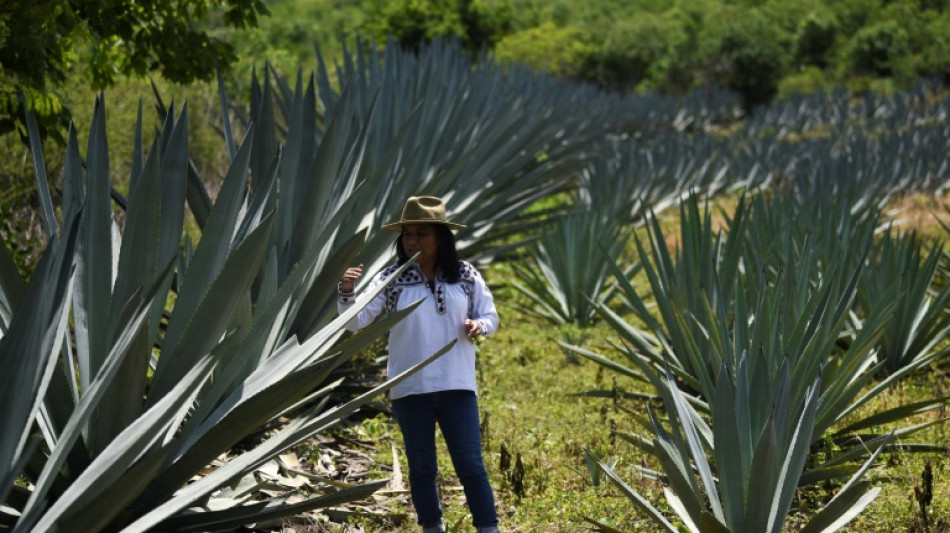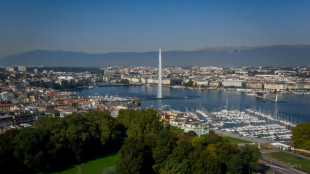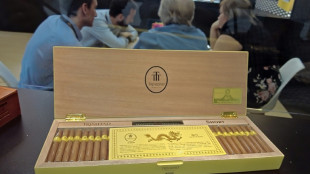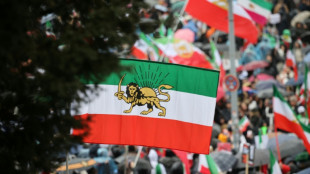
-
 Team USA men see off dogged Denmark in Olympic ice hockey
Team USA men see off dogged Denmark in Olympic ice hockey
-
'US-versus-World' All-Star Game divides NBA players

-
 Top seed Fritz beats Cilic to reach ATP Dallas Open final
Top seed Fritz beats Cilic to reach ATP Dallas Open final
-
China's freeski star Gu recovers from crash to soar into Olympic big air final

-
 Braathen wins unique Winter Olympic gold for Brazil, Gu overcomes scare
Braathen wins unique Winter Olympic gold for Brazil, Gu overcomes scare
-
Lens run riot to reclaim top spot in Ligue 1, Marseille slip up

-
 Last-gasp Zielinski effort keeps Inter at Serie A summit
Last-gasp Zielinski effort keeps Inter at Serie A summit
-
Vinicius bags brace as Real Madrid take Liga lead, end Sociedad run

-
 Liverpool beat Brighton, Man City oust Beckham's Salford from FA Cup
Liverpool beat Brighton, Man City oust Beckham's Salford from FA Cup
-
International crew arrives at space station

-
 Australia celebrate best-ever Winter Olympics after Anthony wins dual moguls
Australia celebrate best-ever Winter Olympics after Anthony wins dual moguls
-
Townsend becomes a fan again as Scotland stun England in Six Nations

-
 France's Macron urges calm after right-wing youth fatally beaten
France's Macron urges calm after right-wing youth fatally beaten
-
China's freeski star Gu recovers from crash to reach Olympic big air final

-
 Charli XCX 'honoured' to be at 'political' Berlin Film Festival
Charli XCX 'honoured' to be at 'political' Berlin Film Festival
-
Relatives of Venezuela political prisoners begin hunger strike

-
 Trump's 'desire' to own Greenland persists: Danish PM
Trump's 'desire' to own Greenland persists: Danish PM
-
European debate over nuclear weapons gains pace

-
 Newcastle oust 10-man Villa from FA Cup, Man City beat Beckham's Salford
Newcastle oust 10-man Villa from FA Cup, Man City beat Beckham's Salford
-
Auger-Aliassime swats aside Bublik to power into Rotterdam final

-
 French prosecutors announce special team for Epstein files
French prosecutors announce special team for Epstein files
-
Tuipulotu 'beyond proud' as Scotland stun England

-
 Jones strikes twice as Scotland end England's unbeaten run in style
Jones strikes twice as Scotland end England's unbeaten run in style
-
American Stolz wins second Olympic gold in speed skating

-
 Marseille start life after De Zerbi with Strasbourg draw
Marseille start life after De Zerbi with Strasbourg draw
-
ECB to extend euro backstop to boost currency's global role

-
 Canada warned after 'F-bomb' Olympics curling exchange with Sweden
Canada warned after 'F-bomb' Olympics curling exchange with Sweden
-
Ultra-wealthy behaving badly in surreal Berlin premiere

-
 250,000 at rally in Germany demand 'game over' for Iran's leaders
250,000 at rally in Germany demand 'game over' for Iran's leaders
-
UK to deploy aircraft carrier group to Arctic this year: PM

-
 Zelensky labels Putin a 'slave to war'
Zelensky labels Putin a 'slave to war'
-
Resurgent Muchova beats Mboko in Qatar final to end title drought

-
 Russia's Navalny poisoned with dart frog toxin: European states
Russia's Navalny poisoned with dart frog toxin: European states
-
Farrell hails Ireland's 'unbelievable character' in edgy Six Nations win

-
 Markram, Jansen lead South Africa to brink of T20 Super Eights
Markram, Jansen lead South Africa to brink of T20 Super Eights
-
Guehi scores first Man City goal to kill off Salford, Burnley stunned in FA Cup

-
 Swiss say Oman to host US-Iran talks in Geneva next week
Swiss say Oman to host US-Iran talks in Geneva next week
-
Kane brace helps Bayern widen gap atop Bundesliga

-
 Ireland hold their nerve to beat gallant Italy in Six Nations thriller
Ireland hold their nerve to beat gallant Italy in Six Nations thriller
-
European states say Navalny poisoned with dart frog toxin in Russian prison

-
 Braathen hails 'drastic' changes after Olympic gold
Braathen hails 'drastic' changes after Olympic gold
-
De Minaur eases past inconsistent Humbert into Rotterdam final

-
 Eurovision 70th anniversary live tour postponed
Eurovision 70th anniversary live tour postponed
-
Cuba cancels cigar festival amid economic crisis

-
 Son of Iran's last shah urges US action as supporters rally in Munich
Son of Iran's last shah urges US action as supporters rally in Munich
-
Jansen helps South Africa limit New Zealand to 175-7

-
 Braathen wins unique Winter Olympic gold for Brazil, Malinin seeks answers
Braathen wins unique Winter Olympic gold for Brazil, Malinin seeks answers
-
Relatives of Venezuela political prisoners begin hunger strike after 17 freed

-
 Ten-man West Ham survive Burton battle to reach FA Cup fifth round
Ten-man West Ham survive Burton battle to reach FA Cup fifth round
-
International crew set to dock at space station


Craft distillers fear mezcal will become victim of own success
With just a look, Sosima Olivera knows when her cherished agave plants will be ready to make mezcal, tequila's lesser-known Mexican cousin whose fast-growing popularity is raising fears of overexploitation.
The mezcal boom means a greater need for the land, water and firewood used to produce the smoky spirit, said Olivera.
"This excess demand from national and international markets has consequences. If more plants are needed, of course there's more exploitation," said the 50-year-old, who heads a producers' collective.
Craft distillers like Olivera, who has dedicated her life to the process, aim to safeguard mezcal's future with measures including seed banks and efforts to showcase artisanal methods.
"A bottle sums up everything we've done for years," she told AFP while touring a field in Mexico's southern state of Oaxaca where magueys -- a type of agave plant -- grow slowly under the sun.
Once drunk only in small Mexican communities, mezcal has enjoyed a surge in demand, both at home and abroad.
It is traditionally sipped neat, accompanied by slices of orange and salt mixed with dried chiles and ground agave worms.
Nowadays it can also be found on the menu in fashionable cocktail bars from New York to Tokyo.
Celebrities who have jumped on the bandwagon include the co-stars of the hit television show "Breaking Bad," Bryan Cranston and Aaron Paul, who founded the drinks company "Dos Hombres."
- No maguey, no mezcal -
The value of Mexico's mezcal exports skyrocketed from nearly $20 million in 2015 to around $63 million in 2020, according to official figures.
The United States, Canada, Spain, France and Germany are among the top consumers of the drink, which is produced in several Mexican states, but above all in Oaxaca.
Although mezcal and tequila have similar production methods, some important differences set them apart.
Tequila is made with blue agave in the western state of Jalisco.
Mezcal uses other types -- including highly prized wild magueys -- some of which take 15 years or longer to mature.
For that reason, producers such as Graciela Angeles believe it is crucial to preserve the plants for future generations.
"What will happen to biological diversity? There are very few efforts to conserve these species," said the 43-year-old creator of the "Real Minero" brand.
"Without magueys there's no mezcal," added Angeles, who keeps seeds to ensure the plants will still exist for her children to harvest one day.
- 'Balance in life' -
The complex process of mezcal production hinges largely on the distiller's talent and sense of smell.
But with the arrival of deep-pocketed corporations, high-volume producers have become little more than "assembly plants" blending mezcal from different communities, Angeles said.
On average, a 750-milliliter bottle costs about $40 in Oaxaca, but the most exclusive varieties have a price tag of more than $100.
In the United States, a limited edition bottle of "Dos Hombres" mezcal made from tobala agave sells for more than $300.
The mezcal produced by Olivera and Angeles is the result of a painstaking process dating back several generations -- something they are determined will live on.
"Small producers will always exist... who know that we have to plant a certain amount of plants, distill a certain amount. There's a balance in life," Olivera said.
Both women organize tastings to showcase the flavors and aromas of their products.
In the city of Oaxaca, mezcal tasting has become a must-do for many tourists.
Australian visitor Christopher Govers said he had learned all about the spirit "after falling in love with the taste and the effect."
"The history and culture behind it is connected with the taste," he said at a bustling trade fair, where an illuminated sign read "Make Mezcal, Not War."
O.Salim--SF-PST

